Evoë! Evoë!
“We’ll draw one card.” He shuffled the deck rapidly. “You depart tomorrow; the full moon sails among the clouds: it will be the keystone card.”
We walked in the formal gardens; the reflection of the moon was a white smear on the river.
“The sect you are to investigate denies the cards,” he continued after a spell. “They believe—how is one to put this? Just the opposite of us, that man is not free yet may nevertheless do anything.”
I frowned and worried the hem of my toga between thumb and forefinger.
“They possess a machine,” he said. “No, the word is not quite apt. In appearance it is a room, only an empty room. But if two men enter the room, they leave as one man. What one knows, the other also knows. They can co-operate without speaking, even if separated by great distances. The sect itself was created by the machine—that is, by the first to re-discover it. Only they know where it is located, whether in the Taurine City itself or elsewhere on their island.”
“How do you know these things?”
“We too possess such a machine, in the catacombs. It is very old. Like most relics, these rooms are not to be meddled with, and until recently, none of us have.”
My superior among the watchers handed to me a flat oblong case, black and lusterless, the size of a pocket ledger. Inside, coiled on a bed of nacre, was a silver whip with a thin bronze handle. Even at rest, the whip seemed to vibrate like a plucked guitar string; it was impossible to actually set one’s eye upon it.
“You will not be permitted to carry a weapon in the Taurine City, but few will recognize this relic for what it is. If questioned, merely say it is a diplomatic gift.”
He fanned the cards. I drew one and held it face down. “Remember,” he said, “nothing occurs by chance. The jagged line of mountains on the horizon reproduces itself in the movement of prices on the exchange. The bifurcations of tree branches are reflected in the veins of a man’s arm, and each causes the other. The future causes the past. The complete image, though it be shattered, can be seen in any shard. What card you hold there is only another aspect of the order.”
I turned it over: the Mirrors. A youth sat between parallel mirrors making an infinity of reflections. The illustration was cunningly designed so we could not tell whether the young man faced us, showing his true face, or away, so we saw only the multiplying reflections.
“What is the place of this card in my voyage?” I handed it back to him.
“Whatever it is,” my superior said, “you will lose it.” With that he flicked the card over the railing into the placid Nile.
* * *
I walked down the gangplank and stood a while on the pier. A wind-rippled awning shielded me from the blazing sun as I watched. The Taurine City marched up the hills that, amphitheater-like, surrounded the harbor. On the west promontory, I could make out what I recognized as the Vitreous Castle, relic of antiquity, seat of the local court.
The liaison greeted me where the pier met the limestone cornice. After politesse that neither of us believed, he said, “I’ve detailed a servant to see after your things. No doubt you wish to view the crime scenes.”
“No,” I replied. “The watcher solves not the crime, but the society that created it. Tell me about the sect.”
We walked up a narrow street, crowded with merchants. Fish near the harbor gave way to brass dishes and jugs, then to woven mats and wicker furnishings.
“A standard secret society,” he lied. “By a series of assassinations they seek to destabilize the state. What goals they have beyond the seizure of power are unknown.”
“In the Nilotic Kingdom they told me little about their leader. What can you add?”
He coughed. “Lord Zagreus may not exist. No one has seen him in ten years—no one reliable. In any case, the reports are not credible.”
“How so?”
“That he can change appearance at will. That he can be in more than one place at once.”
“Thank you.” My smile did not touch my eyes. We stood in front of what was to be my hotel. “If I require your services I’m certain I can find you.”
“My instructions are to accompany—“
“Your Sovereign requested a watcher because you have been unable to solve these crimes or penetrate the sect on your own. If you desire more failure, by all means hinder me.”
The liaison was transparent as glass. After seeing that my effects were in order upstairs, I went to the café in the front of the hotel and ordered coffee. I sat watching the street until the other spies waiting for me revealed themselves. I left the hotel and, after eluding them, walked along the main semicircular thoroughfare, then up one of the radial avenues. At the crest of the ridge the paved streets and plastered houses, blindingly white under the hard sunshine, gave way to dirt paths and dry-stone huts. Beyond, orchards and villas dotted the rocky hills leading away to the faded gray serrations of the island’s central spine of mountains.
I traced the path of the killers. They intercepted their quarry, an advisor to the Sovereign, at night along the road from his country house to the city. His driver and his valet said that the mob, after overturning the coach, pursued the three of them over the fields. Howling inhumanly, they overtook their victim—ignoring the other two—and, with bare hands, tore him apart.
Since then, two more had died in similar fashion. Now few dared to traverse the countryside after dark, and the rural estates were barricaded and guarded by armed men.
I looked up from the earth, where no trace remained, among the fragrant sage and heather, of the blood spilled there. The sun was below the rim of the valley. Before I made it halfway back to the road, night fell and a steady wind picked up. Lacking a trail, I had nothing to guide me in the dark. My linen toga was inadequate for this more northern land and its sea-born wind, and after the second or third time I stumbled over unseen rocks, I resolved to seek shelter for the night. It did not escape me either that I was in the countryside shunned by the natives, and their fears were not unjustified.
A tiny light revealed a farmhouse, distant but manageable. I rapped on the stout wooden door.
I made apologies to the man of middle age who peered through the hatch, but he interrupted me: “You’ve come. That’s all that matters.”
Inside were white-washed walls and terra cotta tiles. The man put a plate of charcuterie in front of me and I ate ravenously, not having realized how hungry I was. “Who are you?” I said after finishing.
“Names aren’t important. We need to discuss the next part of the plan. Our infiltration of the Taurine government is well advanced. Their order is fragile. For our part, we need only the signal to fuse our disparate cells into one body, as the bees do to swarm.” He rubbed a hand across an unshaven cheek. “What is your next imperative?”
“To find the machine of the empty room,” I guessed.
“Let the Sovereign’s agents believe you are loyal. We’ll arrange your passage to the place where the machine is hidden.”
“Will Lord Zagreus be there?” I said.
“You ought to know the answer to that.”
Something made me tell the truth. I told him I didn’t really have any idea what he was talking about.
“You will,” he replied.
* * *
In a café at the margin of an urban square, I laid out the cards. The Weathervane and the blank card both showed up. I scowled. A shadow fell across my table.
“You never returned to your hotel last night.”
He was gray and brittle, with the laborious movements of a marionette. The two men with him stared blankly; visible under their enveloping capes were jeweled weapons.
“How touching,” I replied, “that you waited up.”
“What do you have to report?”
“They think I’m one of them,” I said. “I’m close to finding the machine. But I need more space—and no surveillance.”
He crinkled his face with both assent and a touch of chagrin. No doubt he was aware of the poor performance of his agents in tailing me yesterday.
“And I want answers,” I continued. “Who is Lord Zagreus?”
“How should I know?”
I gathered my new woolen cloak about me and made to rise. “You’ve got the wrong man.”
He put a hand on my forearm. “You won’t cooperate?”
“Not unless I have all the facts.”
The courtier sighed. “Zagreus was an aristocrat who rebelled. For a time his partisans threatened to overthrow our Radiant Court. The—ah—point of contention was, remarkably enough, that little item you have there.” He pointed to my divination cards.
“What happened to him?”
“Because he was of pure blood, he could not be killed. So he was exiled. He went, I believe, to the Nilotic Kingdom. Apparently no one has seen him since.”
Hours later, walking through the city, I came to a place where a wagon overturned at an intersection, spilling its cargo of dozens of tailor’s dummies. For convenience during transport, or for some other reason, many dummies had been partially assembled, but haphazardly, with disparate limbs, torsos, hands, and heads fashioned into startling configurations. As I pondered what significance this event might have, I was struck forcefully on the head and, consciousness guttering like a flame, pushed into a coach that simultaneously drew up beside me.
My vision, initially of a black blur in a womb-red cavern, resolved into a man in a djellaba on velvet cushions. I nudged aside the heavy drapes to see a sliver of some tenement rush past. “They’ll prevent us from leaving the city,” I said.
The man smiled. “I think not.”
I couldn’t see much, but it seemed a tumult had drawn away most of the guards; those remaining studiously ignored us, and our gilded carriage sprinted through the gate. The man, calm throughout, smiled again complacently.
The road wound through leagues of chaparral. At higher altitude, we turned onto a narrow trail through a grove of oaks. Finally, as churning clouds choked out the day’s last sunshine, the coach stopped in the turnaround before a sprawling villa.
Slowly walking down the grand staircase came a man whose ashen robe matched the massive walls. After bathing and taking dinner, I met him in a room looking onto a small courtyard where a few cycads stood among waves of raked sand. The conversation soon turned to my presence, or mission, in the Taurine City.
“You’ve deduced already,” he said, “that your coming here was no accident. We indeed engineered your selection by the Synod of Watchers. What you don’t know is why.” He filled two goblets from a cut-glass decanter. “I’ll tell you a story. Twenty years ago, the owner of this land discovered a hidden machine. This relic had many powers, which the man used in his ascent through the Radiant Court. It altered memories, erasing the old and creating the counterfeit. It seemed to strengthen the intelligence of those who spent time inside. And if two men went into the room, they could hear each other think. Soon their thoughts blurred until they were like one man in two bodies.”
“How did it work?”
“All creation is made of a kind of dust; the ancients had other names. When acted upon by special machines—it cannot be touched by human hands—space and time may not exist for it. This dust is inside our heads. If the cloud of one man’s mind is linked to the cloud of another, what affects one affects both, no matter how distant. A man may move from one body to another, and if the original is destroyed. . .”
I sipped the red wine he’d given me. “So that’s why you summoned me.”
“Correct. Lord Zagreus is scattered, and we have lost the pieces.”
“And now that you’ve found him?” I asked. “Another revolution?”
“Let’s call it a revolution by stealth.”
“I see. Shall we draw to reveal a trace of the truth?” I produced my cards from a pocket.
The man stiffened. “There is nothing for them to reveal. Lord Zagreus fought his war to put an end to that faith.”
I smiled. “But I’m not who you think I am.”
* * *
The mercury rose quickly as the cloud cover broke apart after last night’s thunderstorm. Across the square from the city barracks, I dealt the cards in the tetractys array and my face darkened. I was represented by the Fool; worse, that parcel which he carries was forbidden to me. I lit a match and, without glimpsing that card’s face, ran the flame under its edge. The fire crept up the card, blackening and curling it, and when only a corner remained to grasp, I flung the disintegrating ashes to the ground.
After I had told Taurine courtiers of the route to the heretics’ villa, a battalion immediately set out from the city. Now, as it returned, a soldier I bribed told me of how they’d found the place, arrested all those inside, and discovered many valuable codices but not the machine of the empty room.
In the barracks, they were reluctant to let me see their captives, but my writ embossed with the Sovereign’s seal persuaded them.
“You see?” I said when I was alone with the prisoner, the one I’d met before. “I’m not your messiah.”
“Are you sure? I seem to recall something similar happening before.”
“But in that myth, the messiah was the man betrayed, and his betrayer hanged himself. You’re not Zagreus, and I assure you I have no intention of hanging myself.”
The man took my divination cards, which I’d been idly tapping on the tablecloth. He shuffled, then invited me to cut: the Hanged Man.
Slowly, I ripped the card to confetti. “You gimmicked it.”
He shrugged. “If I did, wouldn’t that be as much a function of fate as whatever card turned up in an honest reading? If the cards indeed reveal truth because of an underlying reality that manifests in everything, then why not in my actions?”
“Because your actions are subject to your will.”
“And what is the will subject to?”
“Man is free to serve fate or not, but if he does not, he will suffer,” I said. “Happiness is having a will that is in accord with fate.”
“There is no fate, but we are creatures of our heritage and our world. We follow from our antecedents.”
“Madness,” I said. “Chaos.”
“You might call it so.”
I wanted to stop talking about fate. “Where is the machine? They didn’t find it at the villa.”
“Whoever said it was at the villa?”
The first heretic I’d met had seemed to imply it, but I realized now his meaning was vague. “Then where?”
“Don’t worry,” he said. “We’ll arrange your passage to the place where the machine is hidden.”
Those were the same words the other had used. For the first time I felt like the victim of a conspiracy, or perhaps the sole audience member for some kind of meta-theater, instead of a participant or author. “Why not tell me?” I said.
“You wouldn’t be a very good watcher if you can’t figure it out for yourself.”
“He was right,” I said to myself once back on the crowded street. “A watcher discovers in plain sight what others can’t see.”
I walked for hours, but even as the day grew hotter, I grew colder. I couldn’t see what I was supposed to see. Doubts multiplied. If the heretics spoke the truth, I had never been a watcher. I thought back to that evening beside the Nile when my superior drew my keystone card: the Mirrors. If that memory was a fiction from the heretics’ machine, could they have intended the loss of a symbol of self-awareness to mean my identity was itself fictitious?
My hand found my divination cards and extracted one. Unthinkingly, it fell from my fingers and blew away. The Magician—the one who wields hidden knowledge—was the worst possible draw. Lord Zagreus was the Magician, it implied, and I his puppet.
Maybe my memories were indeed counterfeit, but they could still serve me. I recalled the words of my mentor when, in the rites of purification, we held our hands to a flame: “If it burns, try to change some little thing in yourself.” As I turned a corner, where the tangled alleys opened to a broad square with views of the countryside, it finally worked. If I couldn’t see what no one else could, I would see what was obvious to everyone. There, poised at the cliff’s edge, was one of the known world’s more prominent relics. The machine was inside the Vitreous Castle.
I had all the time it took to walk there to invent a subterfuge or pretext to enter the Castle, but upon arriving, still having not devised anything suitable, I found it deserted. I strode past broad quartz columns, shot through with pyrite and ultramarine, in the Castle’s empty and echoing central hall. Here and there prisms embedded in the walls cast rainbows. Though the Castle was, as promised, built all of clear materials, the myriad intersecting planes created such a thicket of reflections that one could be certain of little.
I was not alone. What I had at first perceived, through the crystalline walls, as a refracted shard of carmine, resolved, as I progressed, into a man in a hooded robe. I stepped through a doorway and could at last see him directly. His face was hidden by a plain silk mask the same deep red as his robe.
“Come,” he said, little above a whisper.
“Where is everyone?” I suspected a trap, though there was nowhere to hide a mechanism. Nevertheless, I was already in the trap. “Is this not the seat of the Radiant Court?”
“The true Castle is under ground.”
I approached the alabaster throne, carven with bas-reliefs so fine they tended to translucence. Then I noticed the memories. I remembered lurking in the Vitreous Castle as a young man. It had been in this room that I found, by touch, a toggle made invisible by some ancient art. Turning it seemingly changed nothing, and I thought so until, some time later, my childhood friend accompanied me here and we turned it together.
I recalled my rise through the Taurine aristocracy, my rebellion against it, and how, through the machine’s benefices, I had replaced the old Sovereign Idomeneus. I even recalled setting in motion the events that led one unwise watcher to this place.
No doubt the Sovereign absorbed my memories as well. He knew my childhood along the Nile, my training in the watchers’ schools, my journey here three days ago.
“Why?” I asked.
“In the myth, the god sacrifices himself at his followers’ hands. Their abandon in the pursuit and attack catalyzes their evolution. For the sect to coalesce into one mind, we need a catalyst.”
“So those others. . .”
“Were not political assassinations at all, nor acts of terror,” the Sovereign said. “The maenads genuinely believed each victim was Zagreus, but they were mistaken.”
“Unfortunately for those men.”
“Yes, unfortunate.”
“They took the role that’s rightfully yours,” I said, “but their imitations weren’t truthful enough, and you wouldn’t play that role yourself. So you found a ready tool, and gave me your memory.”
“That’s one interpretation. Another is that you are Zagreus returned from exile, and you gave me yours.”
I fled, bursting from the wavy glass doors. The earth was in that state of twilight when the land is sunk in gloom though the sky remains bright. I could hear, among the boulders, voices chanting in an unknown tongue. I took out the deck of cards and the case containing the silver whip.
Hesitating as I touched the deck, I reflected on the cards these past few days. They led like clockwork to this moment.
Then I had a thought: nothing before this moment was real.
Maybe everything was a fiction imposed by the machine. All the cards and all my experiences, deftly designed to make me accept the fate they wanted for me, were part of the narrative they concocted and placed in my memory. All I could be sure was real were the two minutes since I’d left the Castle.
I dashed the cards to the ground; they fluttered and dispersed, ensnared in the brambles. Then I took the whip from its bed of nacre. It sang with a low, resonant buzz. I turned to face them. They moved toward me across the field, howling their insane words: “Evoë! Evoë!”
The End
Robert Pritchard grew up in California and Washington State. He attended Whitman College and studied to be a teacher in New Zealand but never practiced the trade. Today he lives in San Diego and is still waiting for the world to shower riches, fame, and happiness upon him. His fiction has appeared in Zahir (“Aristeia” Summer 2008 and “Pasquale on the Evolution” Fall 2007) and his nonfiction in The New York Review of Science Fiction (“The Collapsing Crutch” Feb. 2008).












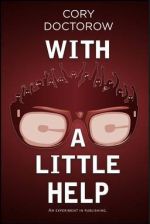
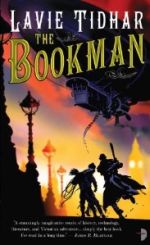
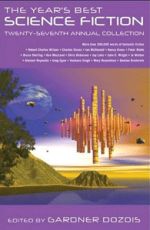



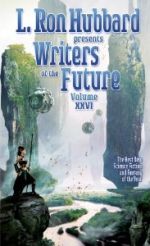

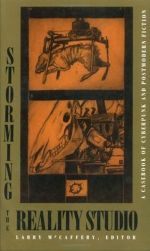



8 comments
[…] how one’s children might turn out. It is both heartwrenching and encouraging, somehow. Evoë! Evoë! by Rob Pritchard is a mesmerizing story. It is as close to a fantasy story as we’ll go, and […]
[…] Evoë! Evoë! by Robert Pritchard […]
[…] http://redstonesciencefiction.com/2011/07/evoe-evoe/ […]
See my website, weird-proof.org, for breaking news, opinions, and recipes. Naw, I’m just joshing, it doesn’t have any of those things.
[…] “Evoë! Evoë!” by Robert Pritchard at Redstone Science […]
Really interesting story. Bizarre blend of solipsism, mysticism and Christianity. But hardcore SF, in my opinion. Not fantasy, not by a long shot. Voice makes me think of Poe. Some strong, thoughtful (and though-provoking) writing.
Very good stuff.
[…] 2011— Issue 15 • Stories in this issue are Vaporware by Mishell Baker, and Evoë! Evoë! by Robert Pritchard. • Michael Ray conducts interviews with Mishell Baker and with three […]